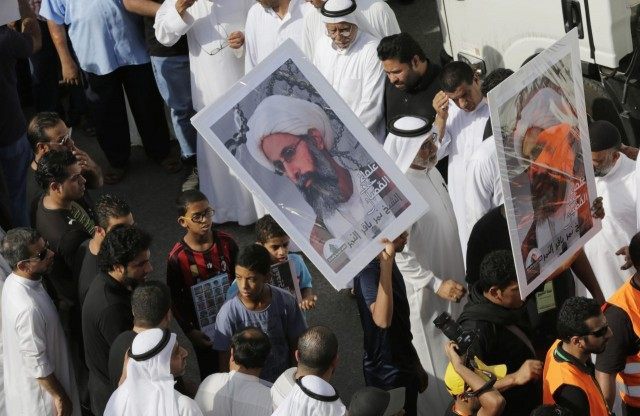JAFFA, Israel – The Saudi authorities executed 47 terror suspects over the weekend, including a Shi’ite cleric whose death sentence raised the ire of Iran and its supporters.
Since Nimr Baqr al-Nimr’s execution, Iran and Saudi Arabia have traded accusations, the Saudi embassy in Tehran has been attacked by rowdy protesters and supporters and detractors have waged war on social media.
Nimr’s execution was slammed by critics of the Saudi royal family, especially among the Kingdom’s Shi’ites (who make up 15 percent of the population), and other coreligionists in Iran, Iraq, Bahrein, and other places.
Who is Nimr, whose death may spark a Sunni-Shi’ite religious war?
Born in 1959, Nimr was one of the most famous Shi’ites in Saudi Arabia. In 1980 he moved to Iran to study Shi’ite theology.
He made headlines in 2009, when he read an audacious sermon criticizing the “discrimination” against the country’s Shi’ites.
“If you further discriminate against the community and ban them from state and military positions, they will secede and come back under the sovereignty of Bahrain” he said.
(Bahrain, a predominantly Shi’ite country, is ruled by a Saudi-backed Sunni royal family that serves as a bulwark against Iranian claims that the tiny state is a lost Iranian territory.)
In June 2012, Nimr rejoiced at the death of the former heir to the throne, Prince Nayef bin Abd al Aziz, and openly criticized the appointment of Prince Salman, now the king.
Nimr was arrested several times: once when he returned to Saudi Arabia from a trip to Bahrain, again in 2008, and finally in 2009, following his call for secession, on suspicion of incitement to violence.
In 2011, with the onset of the Arab Spring revolts, Nimr felt more comfortable speaking out against the regime, which led to his arrest in 2012 for “sowing divisions in the kingdom.” It was reported that Nimr tried to resist arrest and opened fire on police, who returned fire and wounded his leg.
He was indicted in March 2013 and sentenced to death in 2014 for “attempting to divide the nation by spreading sectarian hate speech, incitement to topple the regime, spread anarchy and undermine the state.”
Nimr appealed the sentence, which was upheld in October last year. His execution this week may herald a new phase of the already tense Sunni-Shi’ite relationship in the Middle East.

COMMENTS
Please let us know if you're having issues with commenting.